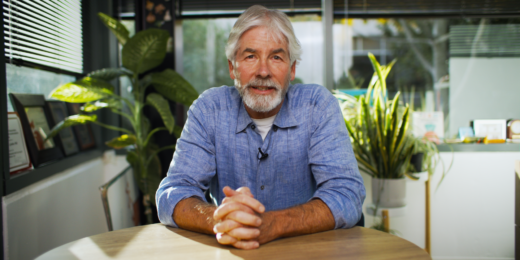Americans are not eating well, Stanford Medicine's Christopher Gardner says, but he is hopeful that encouraging patterns of eating — such as the Mediterranean diet — will help us improve our habits.
Category: Wellness
What’s the deal with BMI, aka body mass index?
Some researchers and clinicians are questioning the value of the body mass index, which estimates a person’s body composition. But do better alternatives exist?
Stanford Medicine launches new podcast, Health Compass
New Stanford Medicine podcast, Health Compass, focuses on the crucial research and important researchers moving health topics forward.
How the tobacco industry began funding courses for doctors
Earlier this year, the largest tobacco company in the world paid millions to fund continuing medical education courses on nicotine addiction —16,000 physicians and other health care providers took them.
Story Rounds inspires real talk by doctors about their toughest work
When physicians open up, good things happen — such as when Stanford Medicine’s Jay Shah shared his experience of finally processing the trauma that accompanies the job of a surgeon.
How gaps in pediatric obesity treatment make access inequitable
Thomas Robinson wrote an editioral about the new guidelines, outlining what treatments got the top recommendation, and how gaps in the healthcare system make access to the best treatments inequitable.
How personal experience forged this student’s passion for combating gender-based violence
Over the past decade, Stanford Medicine student Lillie Reed has dedicated her life and academic career to preventing violence and helping victims heal from the resulting trauma.
For those with an alcohol problem, are non-alcoholic beverages a wise choice?
Q&A with a Stanford addiction specialist on whether non-alcoholic beverages are helpful or harmful for those with alcohol use disorders
A hunger to help people brought her to both surgery, cooking
Carlie Arbaugh is dedicated to both surgery and cooking because they demand meticulous attention to detail and the ability to think on your feet.
At the intersection of science and humanity, he found a sweet spot
Medicine has been the way of connecting both of Brian Smith's passions. “With medicine I could have the intellectual curiosity, but also the chance to talk with people and enjoy the human experience.”
The endometriosis enigma: What to know about this disruptive disease
Despite the fact the disease greatly reduces the quality of many women’s lives, endometriosis remains understudied.
How one blind genetic counselor is doing her part to address ableism
Many people mistakenly assume that because Ronit Mazzoni has been blind since birth, her career choice must have been related to her condition.
Unconventional Paths: How archaeology inspired a path to family medicine
Bright Zhou learned from an interest in studying ancient DNA how storytelling is at the root of good family medicine.
What is behind the legal drug crisis in the US?
The cost of branded pharmaceuticals and quality and availability of generic versions are two key issues facing the U.S. marketplace.
What one youth mental health expert wants you to know about suicide
September is Suicide Prevention Month and mental health experts at Stanford Medicine have important information to share.
What physicians get wrong about the risks of being overweight
Stanford medicine statistician Maya Mathur found that doctors have misconceptions about being overweight shortening lifespans.

















